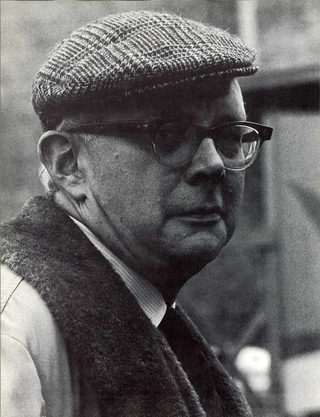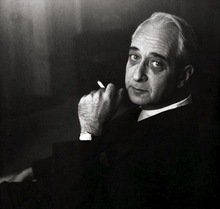
Literary theory is the systematic study of the nature of literature and of the methods for literary analysis. Since the 19th century, literary scholarship includes literary theory and considerations of intellectual history, moral philosophy, social philosophy, and interdisciplinary themes relevant to how people interpret meaning. In the humanities in modern academia, the latter style of literary scholarship is an offshoot of post-structuralism. Consequently, the word theory became an umbrella term for scholarly approaches to reading texts, some of which are informed by strands of semiotics, cultural studies, philosophy of language, and continental philosophy.

A genre of arts criticism, literary criticism or literary studies is the study, evaluation, and interpretation of literature. Modern literary criticism is often influenced by literary theory, which is the philosophical analysis of literature's goals and methods. Although the two activities are closely related, literary critics are not always, and have not always been, theorists.

Irving Howe was an American literary and social critic and a prominent figure of the Democratic Socialists of America.

Lionel Mordecai Trilling was an American literary critic, short story writer, essayist, and teacher. He was one of the leading U.S. critics of the 20th century who analyzed the contemporary cultural, social, and political implications of literature. With his wife Diana Trilling, whom he married in 1929, he was a member of the New York Intellectuals and contributor to the Partisan Review.
New Criticism was a formalist movement in literary theory that dominated American literary criticism in the middle decades of the 20th century. It emphasized close reading, particularly of poetry, to discover how a work of literature functioned as a self-contained, self-referential aesthetic object. The movement derived its name from John Crowe Ransom's 1941 book The New Criticism.
The Chicago School of literary criticism was a form of criticism of English literature begun at the University of Chicago in the 1930s, which lasted until the 1950s. It was also called Neo-Aristotelianism, due to its strong emphasis on Aristotle's concepts of plot, character and genre. It was partly a reaction to New Criticism, a then highly popular form of literary criticism, which the Chicago critics accused of being too subjective and placing too much importance on irony and figurative language. They aimed instead for total objectivity and a strong classical basis of evidence for criticism. The New Critics regarded the language and poetic diction as most important, but the Chicago School considered such things merely the building material of poetry. Like Aristotle, they valued the structure or form of a literary work as a whole, rather than the complexities of the language. Despite this, the Chicago School is considered by some to be a part of the New Criticism movement.

Paul Elmer More was an American journalist, critic, essayist and Christian apologist.

Thomas Ernest Hulme was an English critic and poet who, through his writings on art, literature and politics, had a notable influence upon modernism. He was an aesthetic philosopher and the 'father of imagism'.

Irving Babbitt was an American academic and literary critic, noted for his founding role in a movement that became known as the New Humanism, a significant influence on literary discussion and conservative thought in the period between 1910 and 1930. He was a cultural critic in the tradition of Matthew Arnold and a consistent opponent of romanticism, as represented by the writings of Jean-Jacques Rousseau. Politically he can, without serious distortion, be called a follower of Aristotle and Edmund Burke. He was an advocate of classical humanism but also offered an ecumenical defense of religion. His humanism implied a broad knowledge of various moral and religious traditions. His book Democracy and Leadership (1924) is regarded as a classic text of political conservatism. Babbitt is regarded as a major influence over American cultural and political conservatism.
A Book of Prefaces is H. L. Mencken's 1917 collection of essays criticizing American culture, authors, and movements. Mencken described the work as "[My] most important book in its effects upon my professional career." In fact, the book was considered vitriolic enough that Mencken's close friend Alfred Knopf was concerned about publishing it because of the massive increase in patriotism during World War I in America.
A cultural critic is a critic of a given culture, usually as a whole. Cultural criticism has significant overlap with social and cultural theory. While such criticism is simply part of the self-consciousness of the culture, the social positions of the critics and the medium they use vary widely. The conceptual and political grounding of criticism also changes over time.
Harry Tuchman Levin was an American literary critic and scholar of both modernism and comparative literature.

George Lyman Kittredge was a professor of English literature at Harvard University. His scholarly edition of the works of William Shakespeare was influential in the early 20th century. He was also involved in American folklore studies and was instrumental in the formation and management of the Harvard University Press. One of his better-known books concerned witchcraft in England and New England.
Austin Warren was an American literary critic, author, and professor of English.

Humanism is a democratic and ethical life stance, which affirms that human beings have the right and responsibility to give meaning and shape to their own lives.

Liang Shih-chiu, also romanized as Liang Shiqiu, and also known as Liang Chih-hwa (梁治華), was a renowned educator, writer, translator, literary theorist and lexicographer.
James Everett Seaton was an American writer, professor and literary critic. He argued for the continued relevance and importance of the tradition of literary humanism championed by Matthew Arnold and later, Irving Babbitt and Paul Elmer Moore. At the same time he opposed many of the dominant trends in Academia regarding literary criticism and the teaching of literature, such as the Cultural Studies model instituted by Stuart Hall and the general emphasis away from the study of literary works themselves in favor of a focus on critical theory.
Selected Essays, 1917–1932 is a collection of prose and literary criticism by T. S. Eliot. Eliot's work fundamentally changed literary thinking and Selected Essays provides both an overview and an in-depth examination of his theory. It was published in 1932 by his employers, Faber & Faber, costing 12/6.
The American Review was a magazine of politics and literature established by the fascist publisher Seward Collins in 1933. There were 71 issues published, containing articles, editorials, notes, and reviews, before the journal ceased operations in October 1937.
Traditionalist conservatism in the United States is a political, social philosophy and variant of conservatism. While (traditional) conservatism has been largely based on the philosophy and writings of Aristotle, Edmund Burke, and Joseph de Maistre, the American rendition has had many additions from Russel Kirk, who was a philosopher active around the 1950s.








